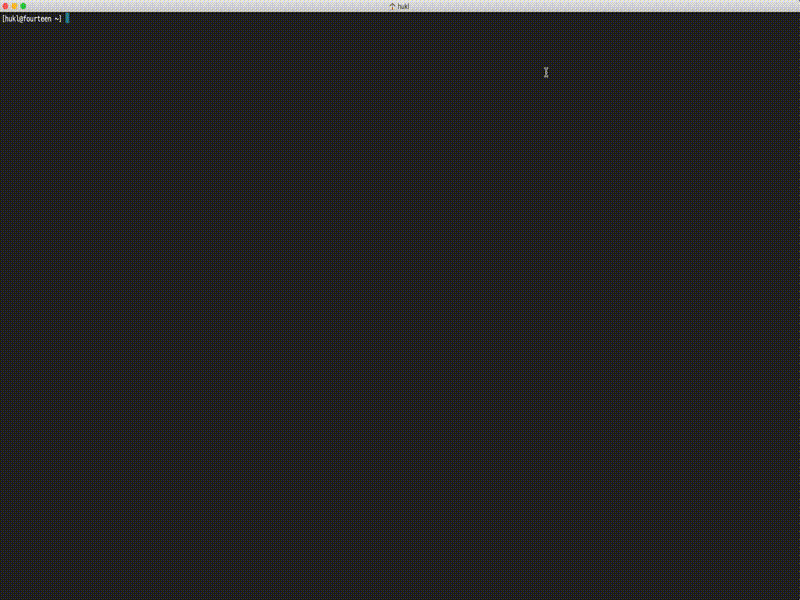hostmux is a small wrapper script for tmux to easily connect to a series of hosts via ssh and open a split pane for each of the hosts. Using the synchronize-pane feature of tmux, commands can be easily broadcasted/multiplexed. This is a light weight replacement for tools like csshX on OS X.
HOSTMUX(1) General Commands Manual HOSTMUX(1)
NAME
hostmux - Connects to a list of hosts via ssh in separate tmux split
panes
SYNOPSIS
hostmux [-h] | [-s session-name] [-l tmux-layout] [-c ssh command]
[-o ssh options] [-f host_file] [-x] [-p] [-P]
[-a] host1 [host2 ...]
DESCRIPTION
Call hostmux followed by a list of hosts you want to connect to via
ssh. The script will create a new tmux session with a split pane for
each specified host and connect to it.
You can then use the synchronize-panes feature of tmux to
multiplex/broadcast commands to all split panes / servers (see -a).
Its arguments are as follows:
-s -session-name
Specify a name for the tmux session. It defaults to 'hostmux'
which means that you can have only one hostmux session at a
time if you don't specify unique names for your sessions
-l -tmux-layout
Specify a valid tmux layout e.g. even-horizontal, tiled, etc.
It defaults to
-f hostfile
Specify a file which contains a newline separated list of
[user@]host names. The hosts from the file will be merged with
the hosts provided as optional arguments
-x Close the pane and/or session automatically when the ssh
session exits successfully
-p Identify panes by setting the pane title to the ssh hostname
(tmux >= 2.3), may not work if the remote host does $PS1 magic
like setting the terminal title, in that case use -P
-P Identify panes by setting the remote prompt $PS1 to
"[<hostname>]$ " after login
-a Synchronize all panes, i.e. type commands simultaneously in all
panes
-c Specify the ssh command. It allows to use a specific wrapper.
It defaults to "ssh"
-o Specify ssh options to play at connection such as a user (-l)
or a connexion port (-p), etc
-h Display usage information
host Specify a space separated list of one or more user@hostname ssh
targets. This is what you would pass to the ssh command when
you are connecting to a host. Currently there is no support for
passing additional flags to ssh. If you do need them, add them
to your ~/.ssh/config
SEE ALSO
tmux(1)
https://github.com/hukl/hostmux
EXIT STATUS
The hostmux utility exits 0 on success, and >0 if an error occurs.
AUTHORS
hostmux was written by John-Paul Bader (hukl), contact@smyck.org.
sh February 6, 2017 HOSTMUX(1)
The following key bindings can be added to your .tmux.conf for even more convenience.
# This toggles the synchronize-panes feature, or use hostmux -a.
bind-key a set-window-option synchronize-panes
# This allows killing the whole session, or use hostmux -x
bind-key X kill-sessionbrew install hukl/tap/hostmuxThis repo contains a zsh completion file which needs to be added to your other zsh completions.
Find or create an appropriate directory, copy the completion file and if the
directory isn't already in your $fpath then add this to your .zshrc:
# Extend Autocomplete Search Path
fpath=(/path/to/your/completions/dir $fpath)Build man/hostmux.1 (roff format) with the Makefile from hostmux.mandoc
(BSD default mandoc format) using mandoc (Debian: apt-get install mandoc).
Copy it to your local man page folder e.g.
/usr/local/share/man/man1/hostmux.1
Let me know!
